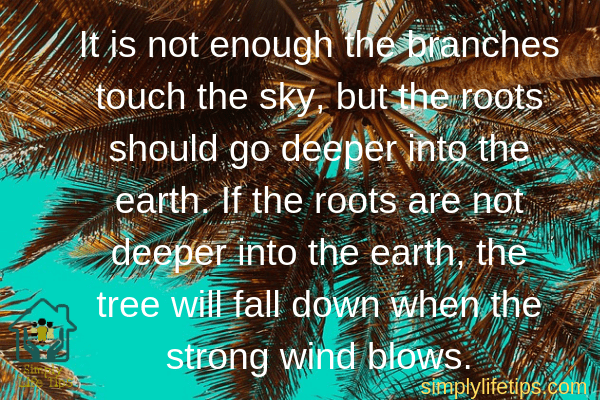It’s vital to recognize that by prioritizing our ego, we might inadvertently hinder our ability to spread happiness. When we allow disputes to escalate into fights, we not only jeopardize our own well-being but also the happiness of those around us.
The prevalent issue many of us face is our ego, which often stands in the way of spreading happiness. Our reluctance to yield or admit when we are mistaken can hinder the resolution of minor conflicts through peaceful discussions. Instead of opting for cooperation and problem-solving, our egos tend to amplify issues needlessly.
In our pursuit of a more harmonious world, we should strive to set aside our egos and embrace humility. By doing so, we can unlock the potential for constructive discussions, compromise, and ultimately, the spread of happiness. After all, isn’t fostering happiness within ourselves and in our communities a far more rewarding goal than clinging to our egos and perpetuating conflict? In this blog, we’ll delve into the myriad ways in which happiness can be spread like wildfire, igniting smiles and sparking joy in the lives of others.
Spread Happiness
In a world that often feels chaotic and fast-paced, where stress and negativity can easily take centre stage, there’s a powerful force that has the potential to transform lives and bring about positive change: happiness. While it may seem elusive at times, happiness is not a fleeting emotion but a profound state of being that can be cultivated and, most importantly, shared. Welcome to our journey into the beautiful and uplifting world of spreading happiness.
Happiness, that warm and fuzzy feeling that warms our hearts and lights up our souls, is not just a personal pursuit but a collective mission. It’s a currency that multiplies when shared, a beacon of hope in times of darkness, and a source of strength in moments of weakness.
From simple acts of kindness that brighten someone’s day to the profound impact of fostering a culture of positivity, our exploration of spreading happiness will delve deep into the science, psychology, and everyday practices that can help us create a happier world for ourselves and those around us. Whether you’re seeking inspiration to bring more joy into your life or looking for ideas on how to make a positive impact on your community, this blog is your guide to discovering the incredible power of spreading happiness.
Join us as we embark on a journey to explore the science of happiness, the art of small acts of kindness, and the transformative effects of positivity. Together, we’ll learn how to create a ripple effect of joy that can reach far beyond ourselves, touching the lives of people we may never meet. So, let’s dive in and discover the beauty of spreading happiness—one smile, one kind word, and one act of love at a time.

This is an interesting small moral story related to the post.
Story of a big tree and small plants

Image by Murray McLauchlan from Pixabay
Due to the forceful gusts of wind, the colossal tree toppled over. Astonishingly, the small plants surrounding it remained unscathed. As the fallen tree lay on the ground, it couldn’t help but inquire of the small plants, “How did you manage to withstand that formidable wind?”
With gentle humility, the small plants responded, “You see, you chose to confront and challenge the strong wind, attempting to overpower it. But the wind might surpass your own, uprooting you from the ground.
We, on the other hand, are different. Even in the presence of a gentle breeze, we bow our heads gracefully. This way, our branches remain intact, firmly rooted in the earth.”
In this brief but poignant tale, we witness how the giant tree’s greed for its towering stature, coupled with its unyielding ego, prevented it from simply bowing its head in the face of adversity. Instead of embracing humility, it chose to wage a futile battle against the relentless wind.
Ultimately, the overpowering wind shook the tree to its core, causing its roots to give way, and it tumbled to the ground. This story imparts a valuable moral: humility and cooperation are virtues that not only preserve our well-being but also cultivate happiness. Engaging in unnecessary conflict often leads to more harm than good, making it all the more important to be humble and work harmoniously with others.
All surrender is not a defeat. But it can bring happiness and save us from damage.
How to spread happiness?

Indeed, some individuals may perceive strikes and fights as the sole means of resolving problems or achieving victory. However, this viewpoint is far from the truth. Many problems can be effectively addressed through peaceful discussion, compromise, and reconciliation.
It’s essential to recognize that the notion of “winning” doesn’t have to be synonymous with conflict and conquest. When we interpret winning solely as fighting and defeating others, we risk undermining the very foundations of survival. True victory can often be found in collaboration, understanding, and finding common ground.
In a world where cooperation and empathy can lead to sustainable solutions, let us remember that there are alternative paths to triumph over challenges. By embracing dialogue and seeking compromise, we can foster harmony, preserve relationships, and ultimately achieve a more meaningful and lasting form of victory.
Obstacles to spread happiness
Ego
Ego indeed plays a significant role in hindering enlightenment and promoting vengeful behaviour when left unchecked.
Many individuals grapple with ego-related issues that impede their ability to compromise or seek reconciliation. Ego often drives people to engage in conflicts, believing it’s a way to establish their strength or superiority. Regrettably, this can exacerbate problems that could have been resolved through peaceful discussions.
Ego can indeed be linked to knowledge, or rather, the perception of knowledge. When individuals acquire knowledge in a particular field or become experts in a certain area, they may develop a sense of superiority or authority. This feeling of knowing more than others can inflate the ego and lead to a condescending attitude. It’s important to strike a balance between confidence in one’s expertise and remaining open to learning from others.
Furthermore, ego can stem from a sense of superiority, where individuals believe they are better than others, as well as from an inferiority complex, where individuals compensate for feelings of inadequacy by projecting superiority. Both forms of ego can hinder personal growth and create conflicts in relationships.
Recognizing the presence of ego and its various manifestations is a critical step toward personal development and fostering healthier interactions with others. Cultivating humility, self-awareness, and empathy can help individuals navigate the complexities of ego and its impact on their lives and relationships.
Greed
Greed, often described as an insatiable desire for more, is a powerful and pervasive human trait that has both captivated and plagued societies throughout history. It’s a force that drives individuals to amass wealth, possessions, or power beyond their genuine needs, often at the expense of others or the well-being of the planet. While ambition and aspiration can be positive motivators, unchecked greed can lead to a host of detrimental consequences, including economic disparities, environmental degradation, and strained relationships.
At its core, greed reflects a relentless pursuit of self-interest, often without regard for the consequences it may inflict on the broader community. It’s a reminder that while ambition and success are admirable goals, they should be tempered by ethics, empathy, and a consideration of the greater good to ensure that the pursuit of personal gain does not come at the cost of the well-being of others or the world we inhabit.
Greed is so destructive. It destroys everything.
Eartha Kitt
Surrender
Surrender should not always be seen as a defeat. In certain circumstances, choosing to surrender for the sake of someone else’s happiness can be a profound act of selflessness, capable of resolving numerous problems.
Occasionally, your own setbacks and failures can bring joy to others. Isn’t it preferable to accept defeat when it can preserve the dignity of others, prevent the rupture of relationships, and spare them from tears?
Throughout history, countless individuals have reached the pinnacle of success because of the remarkable willingness of others to compromise and make sacrifices on their behalf. It underscores the idea that sometimes, surrendering one’s desires can lead to collective achievement and the preservation of valuable relationships.
Never forget the steps climbed to achieve success.
You may have observed how plant branches lean during periods of rain and strong winds. However, once the rain subsides and the wind calms down, these branches and leaves typically return to their upright, straight positions. In fact, most leaning plants can be seen standing tall again within just a few seconds. This remarkable ability of plants to flex and rebound highlights their resilience in the face of natural forces.

Indeed, the strength of a tree lies not only in its branches reaching for the sky but also in the depth of its roots firmly anchored in the earth. Without these deep roots, a tree is vulnerable to toppling over when confronted with a strong wind.
Similarly, in the realm of human resilience, those who weather life’s storms often have their own hidden, deep-rooted strength. This strength manifests as a willingness to compromise and seek reconciliation, even in the face of adversity. It’s a testament to the power of a good heart and the ability to find common ground, ultimately allowing individuals to stand strong and unwavering when the winds of challenge blow their way.
Greed, Ego And Jealousy
Greed, ego, and jealousy are indeed potent negative emotions and behaviours that can have a detrimental impact on our lives and the lives of those around us. They can poison relationships, foster unhappiness, and lead to destructive actions.
Recognizing and acknowledging these tendencies within ourselves is the first step toward growth and personal development. It’s crucial to work on removing or mitigating these harmful traits from our minds and hearts. Cultivating qualities like contentment, humility, and empathy can help us counteract the damaging effects of greed, ego, and jealousy.
By striving to foster a more positive and compassionate mindset, we can not only improve our own well-being but also contribute to a more harmonious and understanding world. In doing so, we empower ourselves to lead more fulfilling lives and build stronger, healthier relationships with others.
Read How to Overcome Jealousy
Anger
Anger is indeed a powerful and potentially destructive emotion. When left unchecked, anger can lead to heated conflicts and disrupt both family and societal harmony.
It’s essential to recognize that anger, like greed, ego, and jealousy, is a natural human emotion. However, it’s how we manage and channel that anger that truly matters. Learning to control our anger through healthy coping mechanisms such as deep breathing, mindfulness, or seeking constructive outlets for frustration can help prevent unwanted fights and maintain peaceful relationships.
Moreover, open communication and conflict resolution skills are invaluable in defusing anger and resolving disputes without resorting to harmful confrontations. By addressing anger in a healthy and constructive manner, we can foster a more peaceful and harmonious family and society, promoting understanding and empathy rather than unnecessary conflict.
Learn to Control Anger
Patience
Patience is a virtue that plays a fundamental role in our pursuit of happiness. It is the ability to remain calm and composed, even in the face of adversity or when confronted with challenging situations. With patience, we gain the capacity to think clearly, make better decisions, and approach problems with a more rational and level-headed mindset.
Patience enables us to navigate through life’s obstacles and setbacks with resilience, giving us the strength to persevere. It allows us to avoid rash actions or decisions that may lead to regret later on. In essence, patience is like a guiding light that helps us maintain our emotional well-being and achieve a more satisfying and harmonious life.
When we exercise patience, we’re better equipped to resolve conflicts, build stronger relationships, and find solutions to complex problems. By cultivating patience, we unlock the door to a happier and more balanced existence, one in which we can face life’s challenges with a sense of calm and optimism.
Read the Importance Of Patience
Forgiveness
Forgiveness holds immense significance in our lives. While our egos may sometimes resist the act of forgiving others, it’s crucial to learn the art of forgiveness. Equally vital is the practice of self-forgiveness.
When individuals grasp the profound importance of forgiveness, both towards others and themselves and integrate this principle into their lives, it has the potential to foster global peace.
By embracing forgiveness and self-forgiveness, we can pave the way for a more harmonious world, one where understanding and compassion prevail over grudges and resentments. It is through forgiveness that we can build bridges, heal wounds, and ultimately create a more peaceful and interconnected society.
Silence
Silence is a hallmark of greatness. It involves the wisdom to avoid unnecessary arguments, recognizing that arguing seldom leads to productive solutions but, rather, tends to stoke anger and conflict.
Unnecessary arguments can be found in various aspects of life, whether it’s in the workplace, during travel, meetings, within the family, or within the community. What’s intriguing is that many times, the person engaging in the argument is aware that their stance may not be entirely correct, yet they persist, often escalating into physical confrontations. Silence has many benefits.
I can relate to this from my own experience. During my time in the workforce, I, too, found myself embroiled in arguments that only served to generate stress and frustration. Arguing often becomes a self-perpetuating cycle, fueled by ego and anger, leaving us feeling guilty and weighed down by stress afterwards.
Recognizing the futility of such conflicts and learning the art of peaceful resolution can not only alleviate stress but also lead to more constructive and harmonious interactions with others.
The right use of the tongue can solve many problems.
Final Thoughts
In conclusion, the path to spreading happiness is not always easy, but it is undeniably rewarding. As we strive to make the world a brighter place through our actions and attitudes, we realize that happiness is not just a destination but a continuous journey. So, let us continue to spread happiness with open hearts, knowing that in doing so, we not only improve our own lives but also contribute to the betterment of the world we all share. Life is fleeting, and in this brief existence, it’s wise to steer clear of needless conflicts. Surrender, at times, is not a surrender at all; rather, it’s a pragmatic approach to resolving problems. Embrace happiness, both within yourself and in the world around you, and share that joy with others.
Related posts for your reading
- How To Develop Effective Communication Skills?
- 7 Communication Mistakes That Should Be Avoided
- Never Speak About Things Unclear To You
What are the points you like in this post?
How do you spread happiness?
Do you have any suggestions to add something more to this post?
Please share the post on your network and help others to read it.

Mathukutty P. V. is the founder of Simply Life Tips. He is a Blogger, Content Writer, Influencer, and YouTuber. He is passionate about learning new skills. He is the Director of PokketCFO.
He lives with the notion of “SIMPLE LIVING, CREATIVE THINKING”. He Believes – “Sharing is caring.” and “Learning never ends.”



